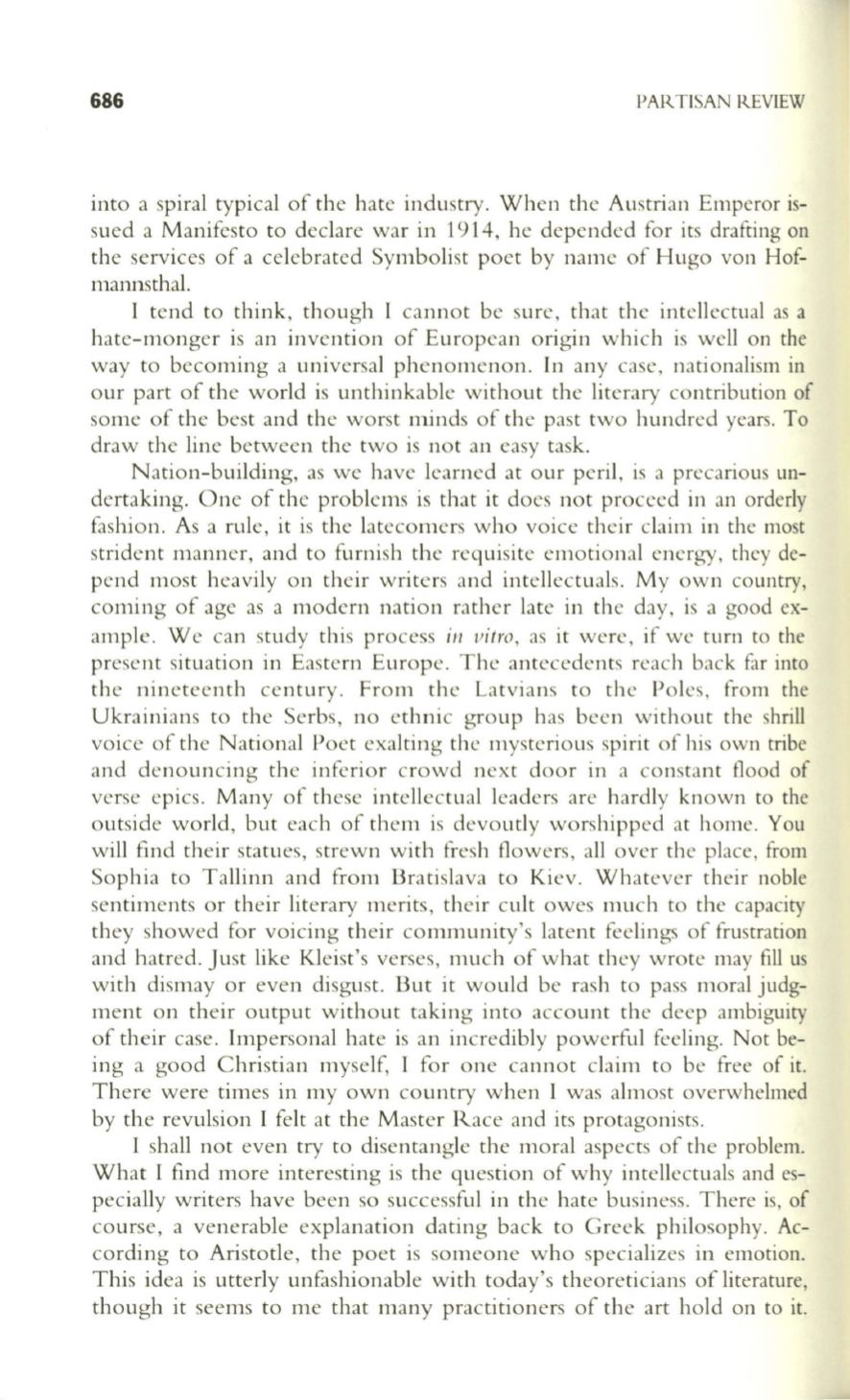
686
PARTISAN REViEW
into a spiral typical of the hate industry. When the Austrian Emperor is–
sued a Manifesto to declare war in 1914, he depended for its drafting on
the services of a celebrated Symbolist poet by name of Hugo von Hof–
mannsthal.
I tend to think, though I cannot be sure, that the intellectual as a
hate-monger is an invention of European origin which is well on the
way to becoming a universal phenomenon.
In
any case, nationalism in
our part of the world is unthinkable without the literary contribution of
some of the best and the worst minds of the past two hundred years. To
draw the line between the two is not an easy task.
Nation-building, as we have learned at our peril, is a precarious un–
dertaking. One of the problems is that it does not proceed in an orderly
fashion. As a ru le, it is the latecomers who voice their claim in the most
strident manner, and to furnish the requisite emotional energy, they de–
pend most heavily on their writers and inte llectuals. My own country,
coming of age as a modern nation rather late in the day, is a good ex–
ample. We can study this process
ill
Ilitro,
as it were, if we turn to the
present situation in Eastern Europe. The antecedents reach back far into
the nineteenth century. From the Latvians to the Poles, from the
Ukrainians to the Serbs, no ethnic group has been without the shrill
voice of the National Poet exalting the mysterious spirit of his own tribe
and denouncing the inferior crowd next door in a constant flood of
verse epics. Many of these intellectual leaders are hardly known
to
the
outside world, but each of them is devoutly worshipped at home. You
will find their statues, strewn with fresh flowers, all over the place, from
Sophia to Tallinn and from Bratislava to Kiev. Whatever their noble
sentiments or their literary merits, their cult owes much to the capacity
they showed for voicing their community's latent feelings of frustration
and hatred. Just like Kleist's verses, much of what they wrote may fill us
with dismay or even disgust. But it would be rash to pass moral judg–
ment on their output without taking into account the deep ambiguity
of their case. Impersonal hate is an incredibly powerful feeling. Not be–
ing a good Christian myself, I for one cannot claim to be free of it.
There were times in my own country when I was almost overwhelmed
by the revulsion I felt at the Master Race and its protagonists.
I shall not even try to disentangle the moral aspects of the problem.
What I find more interesting is the question of why intellectuals and es–
pecially writers have been so successful in the hate business. There is, of
course, a venerable explanation dating back
to
Greek philosophy. Ac–
cording to Aristotle, the poet is someone who specializes in emotion.
This idea is utterly unfashionable with today's theoreticians of literature,
though it seems to me that many practitioners of the art hold on to it.


